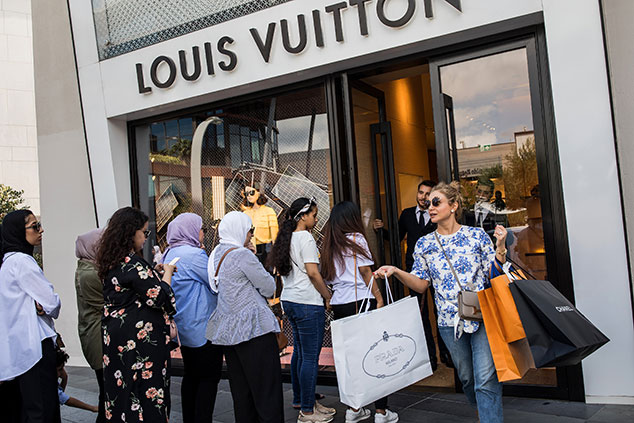
This article is taken from our FREE daily investment email Money Morning.
Every day, MoneyWeek’s executive editor John Stepek and guest contributors explain how current economic and political developments are affecting the markets and your wealth, and give you pointers on how you can profit.
• Don’t miss the chance to see MoneyWeek editor-in-chief Merryn Somerset Webb and guests live at the Edinburgh Festival Fringe this year. Merryn will be talking economics, politics and money at Panmure House – Adam Smith’s only surviving home – from 16 to 25 August. Book now!
In this week’s issue of MoneyWeek magazine
●
Turkey’s coming default will shake the world
●
Four wheels good, two wheels better
●
How to decide when to sell shares
●
Where to find the world’s best assets and industries
●
Netflix is flying too high
● Share tips of the week
Not a subscriber? Sign up here
We ended last week with signs that Turkey’s drama was turning into a crisis.
The country has seen its currency fall by more than 40% against the US dollar in the year to date.
Tourists in Turkey (and those planning to holiday there) have been queuing up to buy lira – suddenly slashing prices will do that to demand – even as investors have been lining up to sell it.
Yet President Erdogan’s son-in-law – the finance minister – has this week done a better job (given the blatant nepotism) than you might expect of calming investors’ nerves.
So what’s next?
Turkey’s temporary reprieve
At the start of the week, it looked as though the Turkish lira might never stop falling.
As is often the case, that sense of complete capitulation marked at least a temporary bottom for the currency.
Turkey’s finance minister, Berat Albayrak, has promised to slash public spending and has ruled out capital controls (which would effectively mean defaulting on a lot of debt). The central bank has also tightened monetary policy by the backdoor, making it harder to sell the currency short.
Meanwhile the Gulf state of Qatar has pledged $15bn of inward investment in support for Turkey.
Given the scale of the slide, these measures – though far from what’s most likely needed (a large hike in interest rates) – have helped to arrest the decline. For now.
The trickier point though, is this dispute with the US over imprisoned evangelical pastor Andrew Brunson. The dispute itself has been a catalyst to bring Turkey’s underlying economic problems to a head. But further sanctions could trigger further panic.
Donald Trump has a big election coming up in November. He wants to win that. He thinks he can do that by showing that he’s the tough guy who can use America’s undeniable clout to get Americans better deals than everyone else.
This issue of the pastor has come about partly because Trump wants to make sure he wins the important evangelical vote. But the situation has deteriorated because Trump thought he already had a deal for Brunson to be freed – instead he was moved to house arrest.
The US has already imposed sanctions. And if Turkey doesn’t back down on that front, then the US will escalate.
But clearly Erdogan is not going to want to back down to threats. And the window for face-saving is getting narrower by the day (it may already have closed). So this could easily get worse before it gets better.
We look at the worst-case scenario (and it is pretty bad) in this week’s MoneyWeek cover story. You can subscribe to the magazine here.
Is there any way to profit from this?
I know some of you are wondering if this is a buying opportunity for Turkey. I have to warn you – I’m a bit of a stick in the mud when it comes to this. I like buying cheap stuff. I like buying stuff where the market has over-reacted, or where a one-off event has sent prices lower.
But I don’t like investing in places where the fundamental governance is deteriorating or at risk of doing so. An asset might look cheap. But capitalism is dependent on functioning property rights. An asset can never be cheap if you have no way to prevent it from being taken from you.
Because if you can’t be sure that you truly own an asset, then what are you really paying for?
So if there’s a genuine chance that when push comes to shove, you won’t be able to lay claim to your assets, then I can’t recommend that you buy them.
This is why, for example, I won’t invest in Russia. It’s cheap. But how much respect do they really have for property rights, particularly the property rights of minority foreign shareholders?
And I have to say, the same goes for Turkey right now. If you’re off on holiday there, then sure, fill your boots with lira and snap up some cheap designer gear. But I wouldn’t be a long-term investor there right now.
What I would consider buying is some of the more promising emerging markets that have been knocked off course by the Turkey jitters, by the soaring US dollar, and by poor results from Chinese tech giant Tencent.
The MSCI emerging markets index has fallen into a bear market – it’s down by about 20% since the start of the year. It’s not exactly representative of the region (that’s what you find with emerging market indices in general), but it gives you an idea of the hit the wider sector is taking.
If this is all a storm in a teacup, the stronger emerging markets will bounce back. If it’s not, then they may have further to fall, but if you buy at reasonable valuations, then in the long run, that shouldn’t matter.
In short, if you’re looking for a Turkey trade, don’t buy Turkey – look to top up the emerging markets you already own.